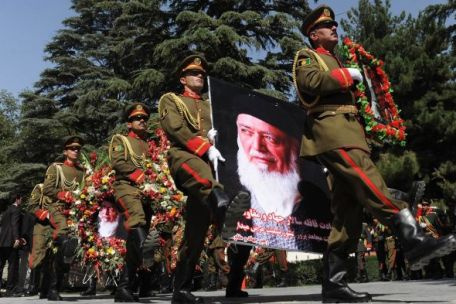The Bitter Fruit of Reconciliation

Following the assassination of Burhanuddin Rabbani, the Head of the Afghan Supreme Peace Council, stronger voices inside the establishment called for abandoning the national reconciliation talks with the Taliban. While he defended the peace talks at Rabbani’s funeral, President Karzai later decided to change his mind and join the anti-negotiation camp. Former FM and Afghan current national security advisor Rangin Dadfar Spanta, also suggested switching the table and initiating talks with the Taliban’s godfathers in Islamabad. Mohammad Ebrahim Taherian, former Iranian ambassador to Afghanistan and Pakistan, reviews the story:
Two years have passed since an array of developments in Afghanistan convinced the majority of the country’s ruling elite that a de facto recognition of the radical Islamists of Afghanistan was called for. The initial goal was to integrate the Taliban into the political process and persuade the group to lay down arms. The British government, and shortly afterwards the White House, endorsed the initiative. Many thought a new phase has been kicked off in Afghanistan’s political arena.
Two conferences held in London and Kabul resulted in the formation of a peace council; the body was unconstitutional yet strongly supported by the administration. Now, ironically, head of the council the late Burhanuddin Rabbani -a respected Afghan mujahed fighting half a century to materialize Afghans’ rights- is assassinated by the same group he and his folks tried to appease. The assassination of Rabbani cannot be attributed to a single person or group, it was the end product of the entire radical movement –and the blissfully ignorant think tanks advocating reconciliation talks. There are no chances for resumption of talks with radical groups as long as there is deep resentment and anger among Afghans over the assassination of an esteemed politician.
The government will be stepping on an already trodden path if it decides to return to the table of negotiations. While all Afghan experts and elites rejected the simplistic categorization of the Taliban into ‘moderates’ and ‘radicals’, Kabul officials -backed by Western countries, particularly the US- resisted kicking off talks. The only way to save Afghanistan seems to be working hard to institutionalize the constitution -an issue largely neglected by the governing power. Attempts to bypass the Constitution and overlook the legislative power have already proved futile.

